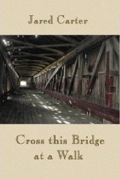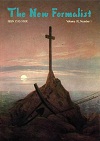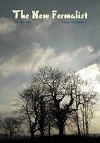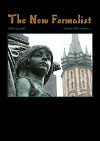Dublin: Autumn Dust
The clock above the Irish Times
Forswearing the faltered day,
A slathering mist on the hills,
A gaffer outside O'Neal's
Afflicting passing strangers
With the secrets of his arid age,
A flurry of gulls on the Liffey,
The bridges drifting into a night
As nebulous as the unraveled day,
A crone beckoning to death
Across the dark water
With frail and brittle gestures,
The massive head of O'Connell
Brooding on his vision of a city,
The heavy air sinking
As darkness palls the quays.
Odalisque
She could have been an odalisque
Who posed for Ingres or Delacroix,
He thought, that afternoon he saw
Her standing in the Place Michel.
Among the crowds of passersby
He'd seen in wanton Paris days
En route to nearby bars, cafes,
He'd come upon no face like hers.
His frail disguise of nonchalance
Dissolved upon their first embrace.
She took his fingers, helped him trace
The deep defile between her breasts.
The hour they spent at some hotel
Outside of St. Germain des Pres
Was all they had, and yet, that day
He witnessed beauty unadorned,
Beheld, before she brushed aside
Her chestnut hair, and rose to dress,
The spoil a sultan might possess.
She could have been an odalisque.
Coole Park Revisited
Among what rushes will they build,
By what lake's edge or pool
Delight man's eyes when I awake some day
To find they have flown away.
— W.B. Yeats, The Wild Swans at Coole
I
"So many lovely things are gone,"
You said, those brooding latter days.
At Coole, a Georgian manor house
Played host to genius down the years,
A country's poets, playwrights, wits,
But blackguard time would pull it down.
Just up the road the Martyn heirs
Contrived to lose Tyllira House;
And who ascends your winding stair
At Ballylee but tourists now?
II
Returning to these Seven Woods,
I leave the world of ghosts awhile.
I go to find those swans again
That wheel and dive across the lake,
Near kin of those you ventured once
Were emblems of the human soul.
What's lost, preserved in years to come
No man can ever prophesy.
Will sylphlike swans be gliding here
When men are silent, man extinct?
Storms
For Sean Kerrigan
When days of stormy skies have done their worst,
And river waters rise and levees burst;
When men implore their gods as skies grow dark,
And every two-by-four becomes an ark;
When friends are lost and burdened with our grief,
We count the cost of storms with disbelief;
When children doubt and wonder how we'll live
And we're without assurances to give;
When we're bereft of all, except the dross,
And mankind's left to calculate its loss;
We'll shut our eyes against the wind and rain,
And waking, we'll arise and build again.
The Dust of Stars
For Louis Turenne
Time was, men breathed the dust of stars,
The smoke from long exploded worlds
When chaos shook the galaxy.
Their voices made the rocks resound
With music never heard before.
To pacify the jealous gods,
They played upon the three-stringed lyre
And gave an antiphon to man.
But science wished their music stilled.
Philosophy would deem them mad,
And some proposed to drive their kind
Beyond the city gates en masse,
Those men of dialectic mind
Who never breathed the dust of stars.



